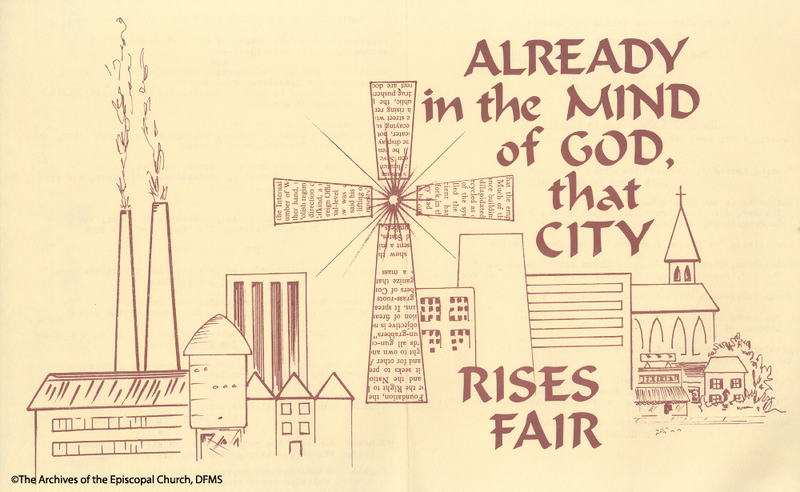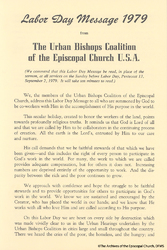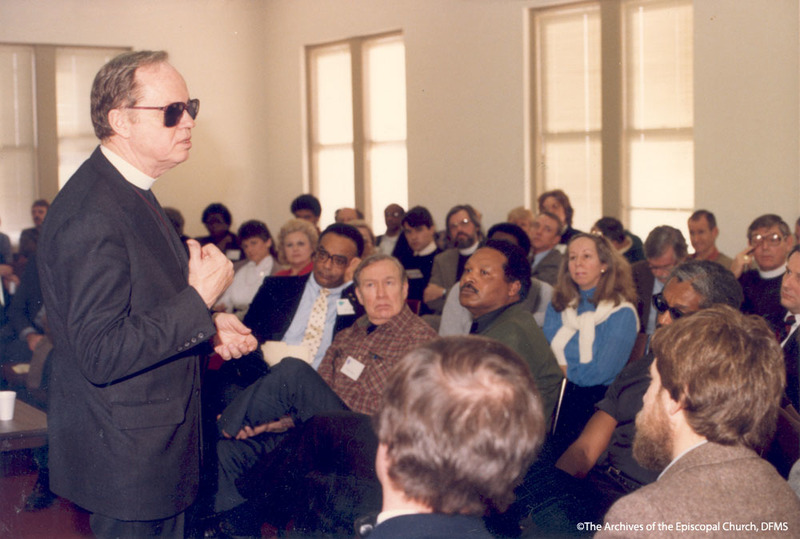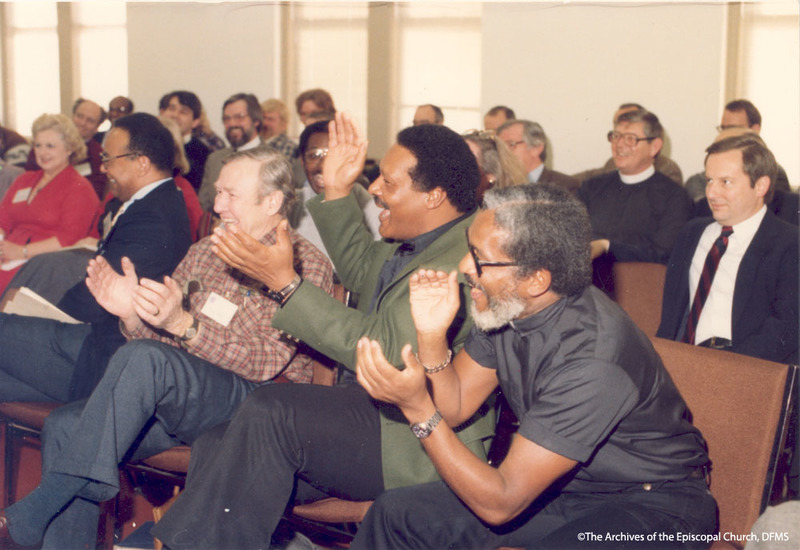Church and City
Service booklet from the 1986 Church and City Conference entitled “Articulating our Vision for Urban Work.”
The “Second Great Migration” of rural African Americans to the large metropolitan areas of the north after the Second World War created a new dynamic in race consciousness and relations in an increasingly tight housing market. A new vocabulary of the “inner city” and the “black ghetto” began to appear. Whites with the means to do so moved away from the cities’ cores to exclusive, highly segregated suburban communities, leaving behind older housing stock and absentee landlords. Neighborhoods rapidly deteriorated in the 1950s and early 1960s at the same time that the government began to erect dreary public housing projects that further fueled segregated housing patterns. Urban African American neighborhoods that had once been vibrant pockets of community activity and commerce were transformed into poverty-stricken and crime-ridden slums with few jobs and failing schools.
Secular African Americans organized a response to the urban crisis through the National Urban League. Within the Episcopal Church, the urban crisis was recognized as a threat and abandonment of what had been the traditional demographic base for Episcopal evangelism. The Church’s response came first from the rectors of downtown parishes who established in the early 1950s the Church and City Conference. The Conference’s simple but urgent mission was to keep the Church alive in urban areas. Through the Joint Urban Program, it sponsored training programs and “pilot dioceses,” both of which raised the Church’s consciousness in the early 1960s about the reality of urban ministry. Concern over the Church’s mission in the cities led bishops of large metropolitan areas to create the Urban Bishops Coalition in 1976.
Joining with Church and City Conference, the groups held a remarkable series of public hearings with the people who lived, worked, and struggled in America’s inner cities, providing them the opportunity to present their concerns to Church leaders. The report generated from these meetings suggested a national entity be organized to strengthen the role of city parishes and to make a long-term commitment to urban issues. The result was the Episcopal Urban Caucus (EUC), which was formed in 1980 and continues today as a proactive and involved ministry in urban affairs and global concerns. [Sources]





